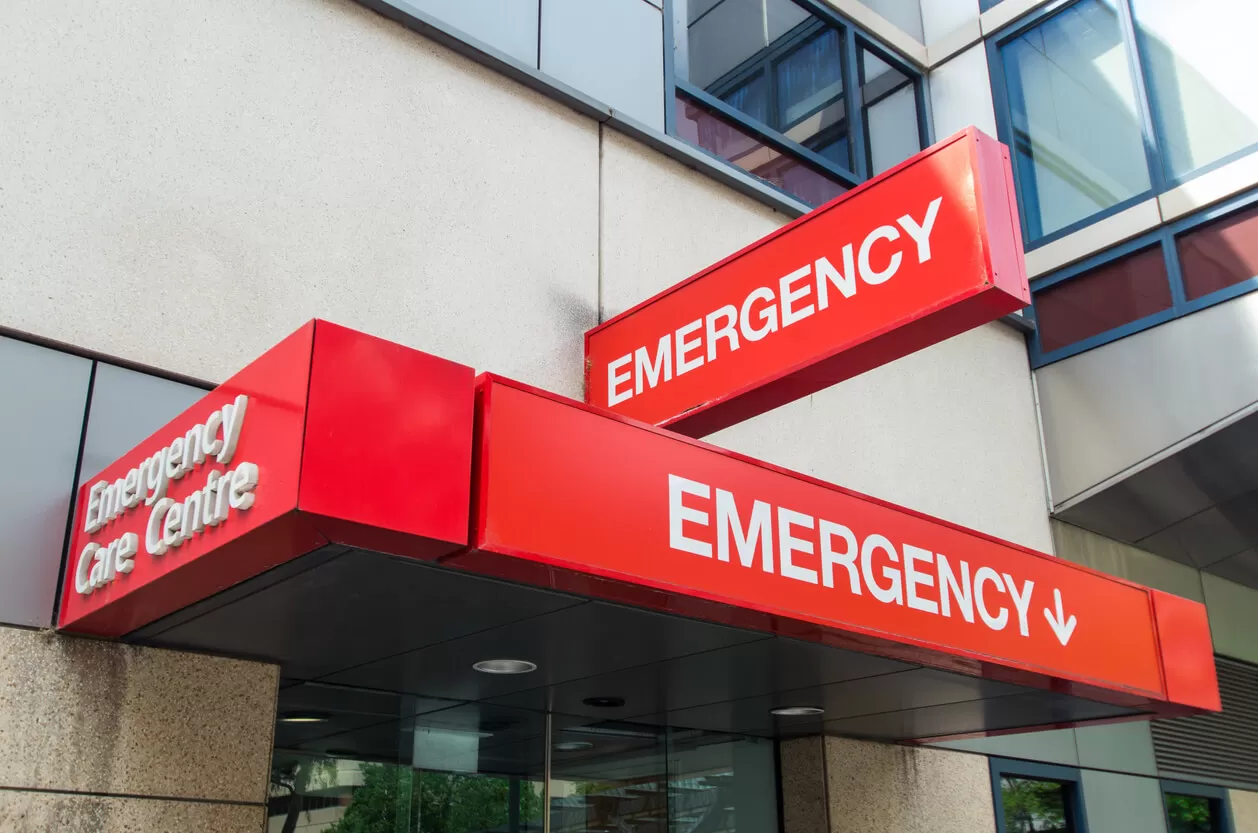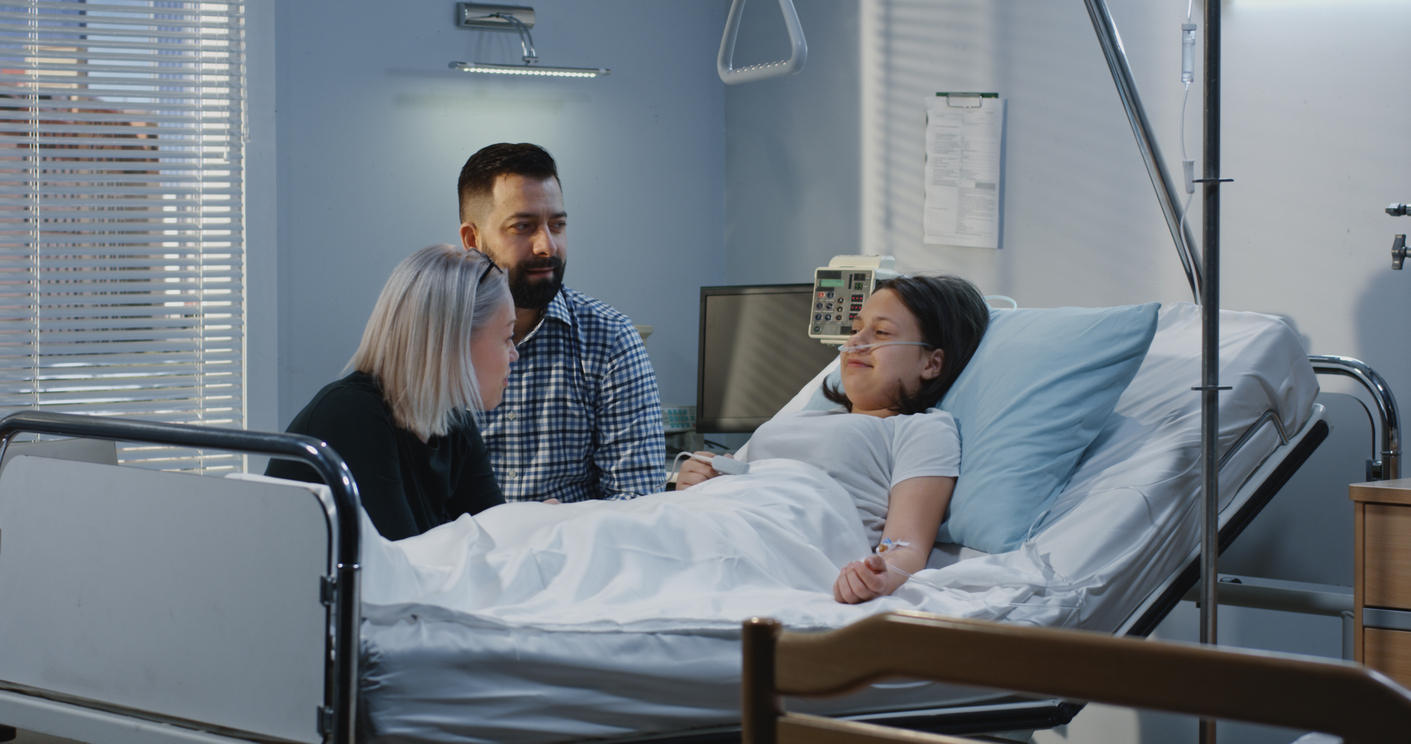The Impact of Seasonal Changes on ER Visits
Seasonal changes significantly impact our lives, from the clothes we wear to the different activities we do. These changes also have a notable effect on our health, which leads to fluctuations in the number of visits to the emergency room. Understanding these seasonal patterns can help you better prepare for health emergencies, ER visits, and ensure you get the care you need fast.
Winter: A Surge in ER Visits
Winter brings a significant increase in emergency room visits for almost all ages. The cold weather can be harsh, especially for vulnerable populations like children, infants, and the elderly. The most common reasons for winter ER visits include respiratory infections, influenza, and hypothermia.
Respiratory Infections
During winter, the number of respiratory infections spikes. Illnesses like bronchitis, pneumonia, and the common cold become more common. These infections are particularly worrying for young children and infants whose immune systems aren’t fully developed.
The risk of complications is higher, making a visit to the children’s emergency room or the infant emergency room critical for proper care and management.
Influenza
Flu season peaks in winter, leading to a surge in emergency room visits. Influenza can cause severe symptoms like high fever, body aches, and fatigue.
Because of their lower immune systems, the elderly and infants are at a higher risk of severe complications from the flu. The flu can be especially dangerous for newborns and infants, sometimes requiring immediate medical attention in a newborn emergency room.
Hypothermia
Hypothermia is when your body loses heat faster than it can produce it. So, when winter comes around and you live in a frigid environment, the risk of hypothermia is higher. Infants and the elderly are at higher risk because they are less capable of regulating their body temperature than the average adult.
If you suspect hypothermia, it’s crucial to seek help at a 24-hour emergency room immediately. The best way to avoid hypothermia is to limit your time outside in the winter and ensure you’re dressed warmly enough.
ER Visits in Spring: Allergies and Asthma
As winter transitions into spring, the number of ER visits often remains high due to seasonal allergies and asthma exacerbations. The blooming flowers and trees release pollen, causing allergic reactions and asthma attacks in vulnerable populations.
Allergies
Seasonal allergies can cause symptoms like sneezing, runny nose, and itchy eyes. In severe cases, people might experience difficulty breathing, which means a trip to the emergency room. Allergies can be particularly challenging for infants, who may struggle to express their discomfort.
Asthma
Spring is a difficult time for people with asthma. Increased pollen levels can cause asthma attacks, leading to shortness of breath, wheezing, and chest tightness. Children with asthma may require immediate care at a children’s emergency room to manage their symptoms effectively.
Making sure you have your inhaler on you at all times and following precautions from your doctor can help prevent trips to the ER.
ER Visits in Summer: Heat and Accidents
Summer brings its own challenges that usually lead to a spike in emergency room visits. The warmer weather encourages outdoor activities, increasing the risk of injuries and heat-related issues.
Heat-Related Visits
Prolonged exposure to high temperatures can result in heat exhaustion or heatstroke. Both of which are medical emergencies. Infants and young children are particularly susceptible because they may not recognize the signs of overheating and keep playing in the heat.
When you or someone starts to show signs of heat exhaustion or stroke, you need to get to the ER as soon as possible.
Some signs of heat exhaustion are heavy sweating, dizziness, nausea, headaches, and general weakness. Heat stroke amplifies these symptoms with a high body temperature, rapid pulse, confusion, and even fainting. It’s important to stay hydrated and limit time in the heat to avoid a trip to the 24-hour emergency room.
Accidents and Injuries
Summer activities like swimming, biking, and playing at the playground can lead to accidents and injuries. Common injuries include fractures, sprains, and cuts, which may require immediate care. Because of these activities, the children’s emergency room sees a significant increase in visits during the summer months.
ER Visits in Fall: Back-to-School Illnesses and Accidents
As children return to school in the fall, there is often an uptick in emergency room visits. The close quarters of classrooms and playgrounds can facilitate the spread of illnesses and lead to accidents.
Infectious Diseases
Schools can be breeding grounds for infectious diseases like the common cold, strep throat, and stomach bugs. These illnesses can spread quickly among children, increasing emergency room visits. Newborns and infants, with their developing immune systems, may also be affected and require immediate medical attention.
Sports Injuries
Fall sports like football and soccer are popular among children and teens. Unfortunately, these activities also come with a risk of injuries, including concussions, fractures, and sprains. A children’s emergency room visit may be necessar to quickly assess and treat these injuries.
Year-Round Vigilance for Chronic Conditions
While seasonal changes bring specific health challenges, people with chronic conditions need to remain vigilant year-round. Chronic illnesses like diabetes, heart disease, and asthma require ongoing management and can result in emergency room visits any time of the year if they’re not properly controlled. Still, chronic illnesses can lead to ER visits anytime, but depending on which one you have, a certain season can make things more dangerous.
Diabetes
People with diabetes have to manage their condition carefully to avoid complications like hypoglycemia (low blood sugar) or hyperglycemia (high blood sugar). Low and high blood sugar each have their own concerns, but both can ultimately lead you to a 24-hour ER.
Heart Disease
Heart disease remains a leading cause of emergency room visits. Symptoms such as chest pain, shortness of breath, and dizziness should never be ignored. Experiencing any of those symptoms, whether you have heart disease or not, can result in needing immediate care at a 24-hour emergency room.
Asthma Management
Asthma is a chronic condition, so it requires year-round management to prevent attacks. Even outside of allergy season, triggers such as pollution, smoke, and respiratory infections can cause asthma symptoms to flare. An emergency room for children is well-equipped to handle severe asthma attacks in young patients.
Reliant Emergency Room: Your 24/7 Care Provider
No matter the season, Reliant Emergency Room is here to provide immediate and urgent care for all your medical needs. Our facilities are equipped to handle different emergencies, from respiratory infections in the winter to heat-related illnesses in the summer.
We also understand the unique needs of our youngest patients and offer specialized care in our children’s emergency room, newborn emergency room, and infant emergency room.
Our team of experienced healthcare professionals is dedicated to providing high-quality care around the clock. It could be noon or the middle of the night, and we’ll be here to help. Whether you are dealing with a sudden illness, an injury, or a chronic condition flare-up, you can rely on us for fast and compassionate care.
Why Choose Reliant Emergency Room
- 24/7 Availability: We are open 24/7, ensuring you have access to emergency care whenever needed.
- Comprehensive Care: Our facilities are equipped to handle various medical emergencies, from minor injuries to life-threatening conditions.
- Specialized Pediatric Care: Our children’s, newborn, and infant emergency rooms are designed to meet the unique needs of young patients.
- Experienced Staff: Our team of doctors, nurses, and support staff are highly trained and experienced in emergency medicine.
- State-of-the-Art Facilities: We use the latest medical technology to provide accurate diagnoses and effective treatments.
When seasonal changes impact your health, remember that Reliant Emergency Room is here. Our commitment to providing immediate and urgent care means that you and your loved ones are in good hands, no matter the season. No matter what your emergency is, come to Reliant Emergency Room if you need immediate and urgent care. We are open 24/7.








